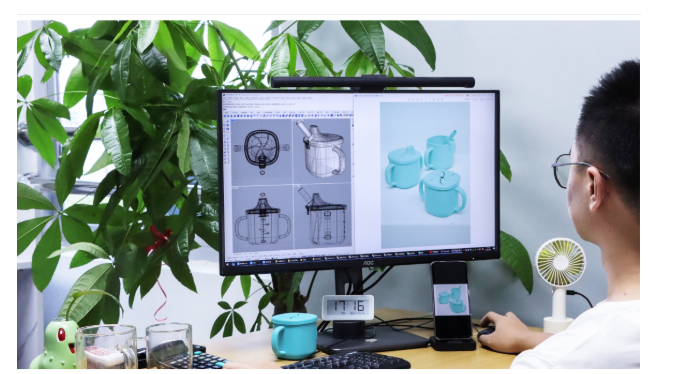Custom Silicone Manufacturer: From Prototype to Production

Silicone has become a go-to material for industries requiring precision, durability, and adaptability. From medical devices to consumer goods, custom silicone products offer unparalleled flexibility and performance. However, moving from a simple idea to a fully functional product requires expertise, planning, and the right silicone manufacturer.
Understanding Custom Silicone Manufacturing
What is Custom Silicone Manufacturing?
Custom silicone manufacturing involves designing and producing silicone products tailored to specific needs. Unlike off-the-shelf solutions, custom silicone products are created to meet unique design specifications, functional requirements, and industry standards. These products are indispensable in sectors such as healthcare, automotive, electronics, and food processing, where precision and quality are paramount.
Applications Across Industries
The versatility of silicone makes it an ideal choice for diverse applications. For instance, medical-grade silicone is widely used in implants, tubing, and seals due to its biocompatibility. In the automotive industry, silicone components withstand extreme temperatures and environmental conditions. Consumer products like kitchenware, wearable devices, and seals also benefit from silicone’s durability and aesthetic appeal.
By customizing silicone components, businesses can achieve superior performance, improved efficiency, and distinctive designs that set their products apart.
The Prototype Phase
Importance of Prototyping in Custom Silicone Manufacturing
Prototyping is a critical first step in creating custom silicone products. This phase allows designers and engineers to test ideas, identify flaws, and refine the design before committing to full-scale production. A well-crafted prototype ensures that the final product will meet functional and aesthetic expectations.
Steps in the Prototyping Process
- Conceptual Design: Engineers and designers collaborate to translate ideas into detailed technical drawings.
- Mold Creation: Using advanced methods like 3D printing or CNC machining, a mold is developed to shape the silicone.
- Prototype Production: Liquid silicone rubber (LSR) is injected or poured into the mold, creating a tangible representation of the product.
- Refinement: Feedback is collected, and adjustments are made to improve the design.
Challenges in Prototyping
Prototyping often involves iterations to address issues such as material shrinkage, improper fit, or unexpected stress points. Time constraints and the need for precise measurements add complexity to the process.
Transitioning from Prototype to Production
Bridging the Gap
Once a prototype is finalized, the focus shifts to ensuring the design is scalable for mass production. Custom silicone products often require minor modifications to molds and processes to maintain consistency during larger production runs.
Production Planning
This stage involves sourcing raw materials, coordinating with suppliers, and optimizing manufacturing workflows. A reliable silicone manufacturer will conduct a thorough risk assessment to mitigate potential production challenges.
Choosing the Right Manufacturing Techniques
Manufacturers use various methods to produce custom silicone products, including:
- Compression Molding: Ideal for simple designs and larger volumes.
- Injection Molding: Perfect for intricate designs requiring high precision.
- Extrusion: Used for continuous silicone profiles like tubing or gaskets.
Each method has trade-offs in terms of cost, speed, and product complexity.
Regulatory and Certification Requirements
Industries like healthcare and food require compliance with stringent standards, such as FDA and ISO certifications. A reputable silicone manufacturer ensures all products meet these requirements.
Full-Scale Production
Mass Production Processes
Scaling production involves transitioning from manual processes to automated systems for efficiency. Modern silicone manufacturers leverage robotics and advanced machinery to ensure accuracy and reduce production times.
Quality Assurance and Control
Quality control is paramount in mass production. Products are tested for durability, flexibility, and resistance to environmental factors like heat and chemicals. Regular inspections and real-time monitoring systems help maintain consistent quality.
Sustainability in Silicone Manufacturing
As industries prioritize sustainability, many manufacturers adopt eco-friendly practices, such as recycling silicone waste and minimizing energy use during production. These efforts align with growing environmental concerns.
Key Considerations for Clients
Selecting a Custom Silicone Manufacturer
Choosing the right silicone manufacturer is critical for project success. Look for a partner with proven expertise, a track record of innovation, and the ability to scale production. Strong communication and customer support are equally important for a smooth collaboration.
Cost Factors
The cost of producing custom silicone products varies depending on factors like mold complexity, production volume, and material requirements. Working with a transparent manufacturer helps balance quality and budget.
Timeline Management
From initial prototyping to final delivery, each phase takes time. Clients should collaborate with their manufacturer to establish clear timelines and manage expectations effectively.
Innovations and Future Trends
Emerging Technologies in Silicone Manufacturing
Advancements in 3D printing allow manufacturers to create complex silicone prototypes faster and more cost-effectively. Meanwhile, AI-driven design tools optimize production processes, reducing waste and improving efficiency.
Shifts in Industry Demands
The demand for custom silicone products continues to grow in sectors like healthcare, where medical-grade silicone plays a vital role in life-saving devices. Additionally, lightweight and high-strength silicone composites are gaining popularity in aerospace and automotive applications.
Sustainable Manufacturing Practices
Silicone manufacturers are exploring biodegradable silicone alternatives and developing processes that minimize carbon footprints. These innovations align with global sustainability goals and customer preferences.
Conclusion
Custom silicone manufacturing is a multifaceted process that transforms ideas into high-quality products through prototyping, meticulous planning, and advanced production techniques. Whether it’s a medical device or a consumer product, collaborating with an experienced silicone manufacturer ensures success at every stage.
By embracing innovation and sustainability, manufacturers and clients alike can meet the growing demands of a dynamic market. As industries evolve, the adaptability and versatility of custom silicone products will continue to drive their widespread application.
